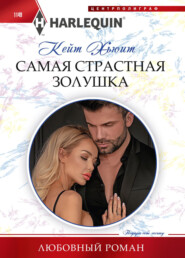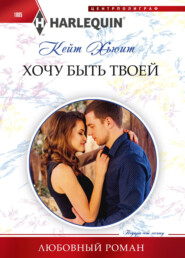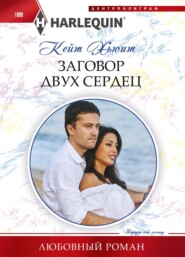По всем вопросам обращайтесь на: info@litportal.ru
(©) 2003-2025.
✖
The Bride's Awakening
Автор
Год написания книги
2018
Настройки чтения
Размер шрифта
Высота строк
Поля
‘I’m simply glad to be back home,’ Vittorio replied, keeping his voice pitched low and smooth, ‘among beautiful women.’
She snorted. She actually snorted. Vittorio revised his opinion; the woman was not like a man, but a horse. ‘You have learned honeyed words on your trips abroad,’ she said shortly. ‘They are far too sweet.’ And, with a faintly mocking smile, she turned and walked away from him as if he were of no importance at all. She left him.
Vittorio stood there in soundless shock, his fury rising. He’d been summarily dismissed, and he, along with the little knot of spectators around him, was conscious of it. He felt the stares, saw a few smug smiles, and knew he’d been put properly in his place, as if he were a naughty schoolboy being disciplined by a mocking schoolmarm. It was a feeling he remembered from childhood, and he did not like it.
Standing there, Vittorio could not escape the glaringly—and embarrassingly—obvious conclusion: as far as opening gambits went, his had been an utter failure.
He’d been planning to ask her to marry him, if not tonight, then certainly in the next few days. When he decided a thing—even to marry—he wanted it done. Completed. Over. He had no time or patience for finer emotions, and frankly he’d considered the wooing of such a woman to be an easy exercise, a mere dispensing of charm, a few carefully chosen compliments.
After reading the article about her—and seeing her photo—he’d assumed she would be grateful for whatever attention she received. She was unmarried and nearing thirty; his proposal would be, he’d thought, a gift. Maybe even a miracle.
Perhaps he had been arrogant, or at least hasty. The wooing and winning of Anamaria Viale would take a little more thought.
Vittorio smiled. He liked challenges. Admittedly, time was of the essence; he was thirty-seven and he needed a wife. An heir. Yet surely he had a week—or two—to entice Anamaria into marriage? He wasn’t interested in making the woman fall in love with him, far from it. He simply wanted her to accept what was a very basic business proposition. She was the candidate he’d chosen, the most suitable one he could find, and he wasn’t interested in any others. Anamaria Viale would be his.
Still, Vittorio realized, he’d acted like a fool. He was annoyed with himself for thinking a woman—any woman—could be charmed so thoughtlessly. It was a tactical error, and one he would not make again. The next time he met Anamaria Viale, she would smile at him because she couldn’t help herself; she would hang on his every word. The next time he met her, it would be on his terms.
Anamaria made sure she didn’t look back as she walked away from the Count of Cazlevara. Arrogant ass. Why on earth had he approached her? Although they were virtually neighbours, she hadn’t seen him in at least a decade. He hadn’t had more than two words for her in the handful of times she had seen him, and yet now he’d expressly sought her out at tonight’s tasting, had looked for her and given her those ridiculous compliments.
Beautiful women. She was not one of them, and she knew it. She never would be. She’d been told enough. She was too tall, too big-boned, too mannish. Her voice was too loud, her hands and feet too big; everything about her was awkward and unappealing to men like Vittorio, who had models and starlets and bored socialites on his arm. She’d seen the photos in the tabloids, although she pretended not to know. Not even to look. She did, on occasion anyway, because she was curious. And not just curious, but jealous, if she were honest with herself, which Anamaria always tried to be. She was jealous of those tiny, silly slips of women—women she’d gone to school with, women who had no use for her—who could wear the skimpy and sultry clothes she never could, who revelled in their own femininity while she plodded along, clumsy and cloddish. And Vittorio knew it. In the split second before she’d spoken, she’d seen the look in his eyes. Disdain, verging on disgust.
She knew that look; she’d seen it in Roberto’s eyes when she’d tried to make him love her. Desire her. He hadn’t. She’d seen it in other men’s eyes as well; she was not what men thought of—or liked to think of—when they considered a woman. A pretty woman, a desirable one.
She’d become used to it, armoured herself with trouser suits and a practical, no-nonsense attitude, the best weapons a woman like her could have. Yet tonight, from Vittorio—stupidly—that look of disdain had hurt. She’d been so glad to see him, for that split second. Stupidly glad. She’d actually thought he’d remembered—
Why on earth had he approached her with that asinine flattery? Had he been attempting some sort of misguided chivalry, or worse, had he been mocking her? And why had he sought her out so directly in the first place?
He was the Count of Cazlevara—he could have any woman he wanted—and yet he’d entered the party and made straight for her. She only knew that because she’d seen him enter the castle, and felt her heart skip and then completely turn over. Even from afar, he was magnificent; well over six feet, he walked with a lithe grace, his suit of navy silk worn with careless elegance. His eyes—as black as polished onyx—had narrowed and his assessing gaze had swept the hall as if he were looking for someone.
That was all she’d seen before she’d been pulled into another conversation, and now Anamaria wondered if he’d actually been looking for her.
Stupid. Fanciful. Wishful thinking, even. Vittorio could have anyone he wanted. Why on earth would he bother with her for a moment?
And yet, for some reason, he had.
Anamaria’s cheeks burned and she took a hasty sip of wine, barely tasting the superb vintage—she was, ironically, drinking one of Cazlevara’s own. It seemed, she acknowledged bleakly, far more likely that he’d been mocking her. Amusing himself with a little easy flattery of a woman who would surely only lap it up gratefully. She knew the type. She’d dealt before with men who treated her with condescending affection, and acted surprised when they were rebuffed. Yet Vittorio hadn’t been surprised by her rebuff—he’d been furious.
Anamaria’s lips curved into a smile. Good.
She knew very little about Vittorio. She knew the facts, of course. He was the richest man in Veneto, as well as a Count. His winery—the region’s best—had been run by the Cazlevaras for hundreds of years. In comparison, her own family’s three hundred year heritage seemed paltry.
His father had died when he was a teenager; she, along with several thousand others, had been at the memorial service at San Marco in Venice. The funeral had been a quiet family affair at the Cazlevara estate. As soon as he reached his majority, he’d gone travelling—drumming up more business for the winery—and hardly ever came home. He’d been more or less absent—gone—for nearly fifteen years. Anamaria could only imagine that a man like Vittorio needed more entertainment than the rolling hills and ancient vineyards Veneto could provide.
She pictured him now, remembering how he’d looked at her from those gleaming onyx eyes. He was a beautiful man, but in a hard way. Those high, sharp cheekbones seemed almost cruel—at least they did when his eyes were narrowed in such an assessing manner, his mouth pursed in telling disdain before he’d offered her such a false smile.
Yet, even as she considered how she’d seen him only a few moments ago, another memory rose up and swamped her senses. The only real memory she had of Vittorio Cazlevara. The memory that had made her smile when she’d seen him again—smile with hope and even, pathetically, with joy.
It had been at her mother’s funeral. November, cold and wet. She’d been thirteen and hadn’t grown into her body yet, all awkward angles, her limbs seeming to fly out of their own accord. She’d stood by the graveside, her hand smeared with the clump of muddy dirt she’d been asked to throw on her mother’s casket. It had landed with a horrible thunk and she’d let out an inadvertent cry, the sound of a wounded animal.
As the mourners had filed out, Vittorio—he must have been around twenty years old then—had paused near her. It was only later that she’d wondered why he’d come at all; their families were acquaintances, nothing more. She hadn’t registered the tall, dark presence for a moment; she’d been too shrouded in her own pall of grief. Then she’d looked up and those eyes—those beautiful eyes, dark with compassion—had met hers. He’d touched her cheek with his thumb, where a tear still sparkled.
‘It’s all right to be sad, rondinella,’—swallow—he’d said, softly enough so only she could hear. ‘It’s all right to cry.’ She’d stared at him dumbly, his thumb still warm against her chilled cheek. He smiled, so sadly. ‘But you know where your mother is now, don’t you?’ She shook her head, not wanting to hear some paltry platitude about how Emily Viale was happy now, watching her daughter from some celestial cloud. He took his thumb, damp with her tears, and touched it to his breastbone. ‘In here. Tua cuore.’ Your heart. And with another sad, fleeting smile, he had moved away.
She’d known then that he’d lost his father a few years before. Even so, she hadn’t realized another person could understand her so perfectly. How someone—a stranger—had been able to say exactly the right thing. How later, when she wept scalding tears into her pillow, wept until she felt she’d be sick from it and her mind and body and heart all felt wrung, wasted, she’d remember his words.
It’s all right to cry.
He’d helped her to grieve. And when the pain had, if not stopped, then at least lessened, she’d wanted to tell him that. She’d wanted to say thank you, and she supposed she’d wanted to see if he still understood her. Understood her more, even, than before. And she’d wanted to discover if she, perhaps, understood him too. A ridiculous notion, when that passing comment was the only conversation they’d ever really shared.
Over the years, she’d almost—almost—forgotten about Vittorio’s words at her mother’s graveside. Yet in that second when she’d seen him again, every frail, childish hope had leapt to life within her and she’d thought—she’d actually believed—that he remembered. That it had meant something.
Her pathetic foolishness, even if only for a second, annoyed her. She wasn’t romantic or a dreamer; any dreams of romance—love, even—she’d once entertained as a child had died out years ago, doused by the hard reality of boarding school, when she’d been a picked-on pigeon among swans. Ana’s mouth twisted cynically. Perhaps not a pigeon, but a swallow, a plain and unprepossessing bird, after all.
They’d flickered briefly back to life in her university days, enough so that she had been willing to take a risk with Roberto.
That had been a mistake.
And, just now, the moment Vittorio Ralfino’s mouth had tightened in disdain and then uttered words Anamaria knew to be false…the last faint, frail hope she hadn’t even known she’d still possessed had flickered out completely. Mockery or lies. She didn’t know which. It hardly mattered.
Anamaria took another sip of wine and turned to smile at another winemaker—Busato, a man in his sixties with hair like cotton wool and a smile as kind as that of Babbo Natale. As one of the few female winemakers in the room, she appreciated his kindness, as well as his respect. And, she told herself firmly, she would dismiss Vittorio Cazlevara completely from her mind, as he had undoubtedly dismissed her from his. A few words exchanged nearly seventeen years ago hardly mattered now. She wouldn’t be surprised if Vittorio didn’t remember them; it certainly shouldn’t hurt. He’d merely been offering her a few pleasantries, scraps tossed from his opulent table, no doubt, and she vowed not to give them a second thought.
A light gleamed in one of the downstairs windows of Villa Rosso as she headed up the curving drive. Her father was waiting for her, as he always did when she went to these events; just a few years ago he would have gone with her, but now he chose to leave such things entirely to her. He claimed she needed her independence, but Anamaria suspected the socialising tired him. He was, by nature, a quiet and studious man.
‘Ana?’ His voice carried from the study as she entered the villa and slipped off her coat.
‘Yes, Pap??’
‘Tell me about the tasting. Was everyone there?’
‘Everyone important,’ she called back, entering the study with a smile, ‘except you.’
‘Bah, flattery.’ Her father sat in a deep leather armchair by the fireplace; a fire crackled in the hearth to ward off the night’s chill. A book lay forgotten in his lap and he took off his reading spectacles to look at her, his thin, lined face creasing into a smile. ‘You needn’t say such things to me.’
‘I know,’ she replied, sitting across from him and slipping off her shoes, ‘and so I should, since I was the subject of a flatterer myself tonight.’
‘Oh?’ He shut his book and laid it on the side table, next to his spectacles. ‘What do you mean?’
She hadn’t meant to mention Vittorio. She’d been trying to forget him, after all. Yet somehow he’d slipped right into their conversation before it had even started, and it couldn’t even surprise her because, really, hadn’t he been in her mind all evening?
‘The Count of Cazlevara has returned,’ she explained lightly. ‘He made an appearance tonight. Did you know he was back?’
‘Yes,’ Enrico said after a moment and, to Ana’s surprise, he sounded both thoughtful and guarded. ‘I did.’
‘Really?’ She raised her eyebrows, tucking her feet under her as she settled deeper into the armchair of worn, butter-soft leather. ‘You never told me.’ She couldn’t quite keep the faint note of reproach from her voice.
Her father hesitated and Ana had the distinct feeling he was hiding something from her. She wondered how she even knew it to be a possibility, when their relationship—especially in the years after her mother had died—had been so close, so open. It hadn’t always been that way, God knew, but she’d worked at it and so had he, and yet now…? Was he actually hiding something from her?
She gave a little laugh. ‘Well, Pap??’

















